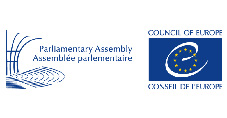
International partners express deep concern over divisive appointment of Supreme Court Judges for lifetime against their recommendations
By Levan Abramishvili
Monday, December 16
The Georgian Parliament last Thursday appointed 14 Judges of the Supreme Court for lifetime tenures against repeated recommendations from international partners. Earlier that day the Legal Issues Committee of the Parliament supported 14 candidates out of 20, after which they were approved at the plenary session and took an oath the same day. Opposition parties did not participate in the vote. The voting process was accompanying by numerous incidents. Activists spilled malodorous substance during the plenary session and several MPs and staff members had to leave the hall due to the unpleasant smell.
Meanwhile, protesters gath¬ered at Rustaveli Avenue in front of the parliament and demanded that the candidates are not appointed.
The U.S. Embassy in Georgia immediately made a statement regarding the appointment of the judges, stating that in May they expressed disappointment at Parliament’s adoption of se¬lection procedures that failed to incorporate many of the recommendations of the Venice Commission (VC), OSCE Office for Democratic Institutions and Human Rights (ODIHR), and the U.S., EU, and Council of Europe missions in Tbilisi.
Furthermore, the statement of the embassy stresses that the selection process, conducted by the High Council of Justice lacked transparency and re¬sulted in a list of candidates that “did not fully represent the best-qualified candidates.”
The critical statement also notes that during the hearings of the candidates at the Parlia¬ment, many of them couldn’t show their expertise and im¬partiality.
“The hearings for the nomi¬nees in the Parliament’s Legal Committee were open and transparent. During the hear¬ings, a number of candidates were unable to demonstrate sufficiently their legal expertise or a commitment to impartial¬ity. We regret the list of candi¬dates approved in Parliament today includes such nominees,” read the statement.
The Embassy encouraged the authorities to take into ac¬count all of the shortcomings that were identified by the international bodies in the fur¬ther selection of the Supreme Court judges.
“Judicial independence en¬sures the rule of law, safeguards democracy, and is a cornerstone of economic growth. In order to instill greater confidence in Georgia’s judicial system, we encourage Parliament and the relevant authorities to address the identified shortcomings in the Supreme Court judge selec¬tion process before the selection of additional candidates,” read the statement of the Embassy.
European Union Spokes¬person for Foreign Affairs and Security Policy has also issued a special statement showing concern over the appointment of judges to the Supreme Court of Georgia. The Spokesperson reiterated that the Venice Commission recommendations weren’t taken into account and the shortcomings found by the OSCE/ODIHR remained unad¬dressed.
“A number of the appointed candidates do not enjoy broad public trust, as was obvious in the course of the selection process. While the hearings carried out in the Parliament were transparent, more efforts should have been devoted to justifying the choice of candi¬dates ahead of the final vote,” read the statement.
The Spokesperson empha¬sized that the determination of Georgia to maintain the highest standards of ethics and integrity in its judiciary remains essential to the cred¬ibility of the judiciary in the eyes of Georgian people and to advancing the EU-Georgia agenda.
“A revision of the selection procedures to take full account of the recommendations of the Venice Commission, as well the shortcomings registered by the OSCE Office for Democratic Institutions and Human Rights (ODIHR) and other key observ¬ers, should, therefore, take place ahead of any additional appointments,” read the EU statement.
The co-rapporteurs of the Parliamentary Assembly of the Council of Europe (PACE) for the monitoring of Georgia, Titus Corlatean and Claude Kern have also expressed their regret and disappointment with the decision of the Geor¬gian parliament to appoint 14 judges to the Supreme Court, against the recommendation of the international community, including the Assembly.
“During our visit in Septem¬ber, we expressed our serious concerns about the opaque and deficient selection process of candidates for the Supreme Court by the High Council of Justice. At that time we ex¬pressed our expectation that the parliament would rectify the shortcomings in the selec¬tion process, including by ap¬pointing only the minimum number of judges needed to ensure the proper functioning of the Supreme Court, in line with the recommendations of the Venice Commission,” said the co-rapporteurs.
The statement of the co-rapporteurs was especially critical and pointed out that the appointed candidates included people who have not demon¬strated during the selection process that they have the legal knowledge and independence required for such an important position. “This can only be de¬plored,” they said.
The co-rapporteurs empha¬sized that it was now important to take swift measures to en¬sure the required public trust in the justice system and the independence of the judiciary. They called on the authori¬ties to promptly adopt the VC recommendations not only for the selection of Supreme Court judges but for judicial appoint¬ments in general.
In the light of this develop¬ment, the co-rapporteurs said they intended to make regular monitoring visit the country next year.
On April 16, Venice Com¬mission published their urgent opinion on the selection and appointment of Supreme Court judges. The document consisted of 68 articles and gave recom¬mendations to the Government of Georgia on the request of Irakli Kobakhidze, the Chair of the Parliament at the time.
The document was critical and said that since the final ap¬pointment will be made by the Parliament, that implies the present parliamentary major¬ity will be entrusted with the appointment of a new Supreme Court, the creation of which will possibly remain the same for the next 20 to 30 years.
“This is an important and very unusual, if not extraordi¬nary, situation. In most coun¬tries, the appointment of judges – especially to a supreme court – is staggered over years, if not decades. This renders the nomination and appointment procedure for these judges in Georgia all the more important and should be considered with great care,” read the document.
Additionally, due to the im¬portance of the selection pro¬cess and the high interest of the society in this topic, The Public Defender of Georgia addressed OSCE/ODIHR and requested that they monitor the process.
While monitoring, ODIHR found numerous shortcomings and stated that the process lacked transparency and ac¬countability.
The ODIHR report read that the candidates were treated un¬equally, the transparency was limited and the interviews with the applicants were ‘highly disorganized,’ because “High Council of Justice (HCJ) did not adopt rules of procedure or a code of conduct for the hear¬ings to ensure a fair and orderly process.”
Furthermore, the ODIHR report noted that the tensions within the HCJ were very high during the process, culminat¬ing in repeated offensive com¬ments and heated arguments disrupting the interviews and creating an unprofessional en¬vironment.
With the recent constitu¬tional amendments, the num¬ber of Supreme Court judges expanded from 16 to 28, while the 10-year mandates were extended to lifetime tenures.
The High Council of Justice was given the authority to nom¬inate candidates for parliamen¬tary appointment. After the controversial selection process, the Council provided a list of 20 candidates to the Parliament of Georgia for approval.
Aside from ODIHR, VC and PACE, independent experts and non-governmental organ¬isations have been exception¬ally critical and found gross failings in the selection process.



